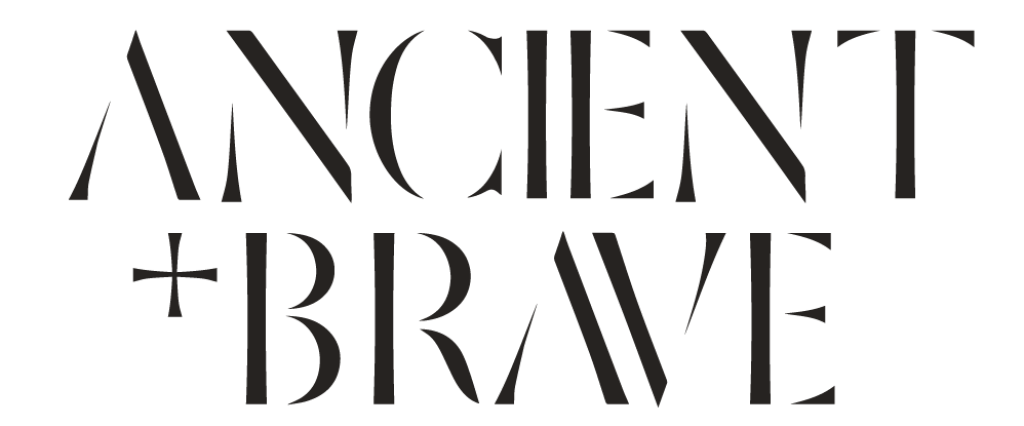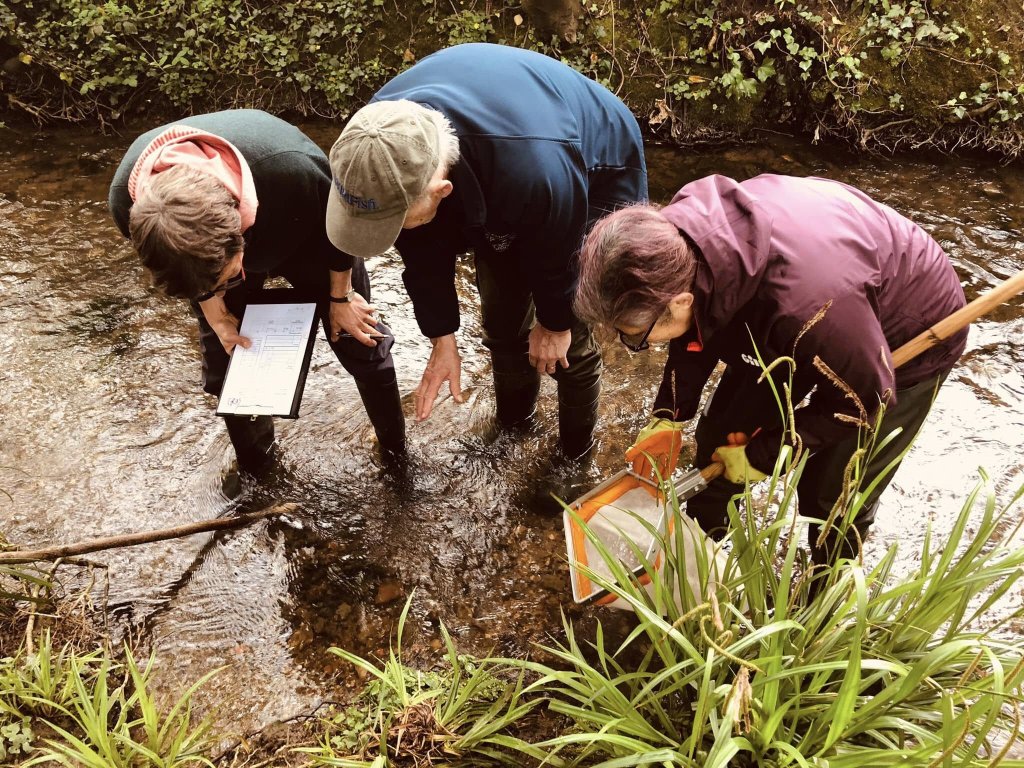A Huge Thank You!
Our Citizen Science programme is currently supported by Ancient + Brave through our membership of 1% for the Planet.
This partnership enables us to provide training and co-ordination across a range of activities which enable individuals and local communities to get involved in monitoring the health of their local river.
We are always looking for volunteers to get involved, and for sponsorship to support our work, collecting and analysing data relating to water quality, fish populations and non-native species. See below for more information and if you are interesting in getting involved then please contact [email protected].
Riverfly Monitoring Initiative
The Riverfly Partnership is hosted by the Freshwater Biological Association as a dynamic network of organisations, including anglers, conservationists, entomologists, scientists, water course managers and relevant authorities.
The Riverfly Monitoring Initiative (RMI) has been pioneered by the Riverfly Partnership to provide a simple, standardised monitoring technique which can be used to detect any severe distresses in river water quality and directly communicate with their local ecological contact at the Environment Agency (EA). Used alongside routine monitoring by the Environment Agency, the RMI scheme ensures that water quality is checked more widely, and remedial action is taken at the earliest opportunity, it can also act as a deterrent to polluters, knowing the local area is being monitoring. Data from the national programme is open access via the Cartographer website.
Through our involvement in this initiative we aim to:
Develop Skills
A structured training course and
practical session covers the skills needed to undertake Riverfly Monitoring. We will support those wishing to go further with advanced riverfly training after 12 months of surveys.
Provide Evidence
Data will be uploaded on the national
database and signposted through the data hub. We will liaise with the
Environment Agency where results
show presence of pollution.
Be Accessible
RMI is quick to learn and accissible to all making it the ideal entry level programme for all thos ewishing to be part of river monitoring or do not have the time to be more involved
Produce Extensive Data
The simplicity of the approach and rapid nature of data collection makes RMI suited to the establisment of an extensive network of monitoring sites distributed across the catchment.
Riverfly Progress
Our aim is to have 100 sites regularly monitored by 2030, one year in and we’re at 14 sites and have undertaken 47 samples. All our data can be viewed here on the Riverfly national database.
Chemical Testing
Water quality underpins all aspects of river health and pollutants come in various forms and from a wide range of places. Current focus on sewage pollution, directed solely at water companies, fails to recognize the impacts of agriculture, private sewage treatment, road run off, industrial areas and individual properties. Our Chemical Testing will provide training in the use of field kit such as handheld spectrometers, conductivity meters (for road run off), turbidity tubes and dissolved oxygen meters to enable River Rangers to conduct a full suite of water analysis. Using handheld kit enables trained volunteers to provide a rapid response to reported pollution incidents along with undertaking regular sampling at potential “hotspots” identified through OARTs previous work.
There is a high level of community interest in water quality and through the formation of long-term, publicly available data sets, we will see not only the bad bits but also the success stories as things improve. Data will also provide a useful resource to students or academic institutions undertaking studies on the river system where more comprehensive data sets are required than time may allow.
Through our Chemical Testing we will
Develop Skills
Water quality training in use of kit and interpretation of results will provide greater awareness and knowledge of the pressures facing our waterways.
Provide Opportunity
Those in the community undertaking relevant training or academic studies will benefit from accessible kit. People can test areas of interest and provide rapid response to incidents.
Direct Change
Results presented to relevant authorities and made available online through data portal. Provide focus on delivering solutions relevant to the evidence produced.
Sea Trout Watch
Often described as the “Jewel in the Crown” of the River Ouse and shown to have different morphological characteristics to those in different rivers along the south coast. This enigmatic species was also the key focus when the predecessors of OART were formed back in 1995. We have been coordinating an annual “Sea Trout Watch” for many years but this has faltered since 2020 and many of those involved have moved on. We want to reinvigorate it, expanding the number of sites and allocating volunteers a section of river to survey and report back on the presence of “redds”, the areas of disturbed gravel where sea trout have spawned. Having such long-term datasets enables us to analyse populations through time and provides an early warning as to any significant decrease in numbers. The results also help us to identify where spawning areas require management/maintenance to ensure there is always habitat available to support the Sea Trout.
Through our Sea Trout Watch we will
______________________________________________________________________________
River Rangers
River Rangers are our eyes and ears on the ground and invaluable to our success. From assisting with delivery of projects, to onsite management and long-term monitoring, our highly valued volunteer force not only helps us deliver but is instrumental in focusing our attention where most needed for future projects.
Want to get involved? You can contact us at [email protected] to find out more or sign up to our River Ranger mailing list, alternatively follow us on social media as most of our activities are advertised here.
Practical Conservation
Providing on the ground support in delivering projects. From in-channel habitat works to planting wetland plants, trees and hedgerows, our volunteers are always involved in creating the habitat essential for all stages of river and wetland life.
Ecological Monitoring
After our projects are complete, we want to know if they meet our aims and where appropriate our River Rangers undertake ecological monitoring of a range of species. We provide training and support across a wide range of species which has included freshwater invertebrates, amphibians and reptiles, harvest mice, small mammals, birds, and dragonflies.
Preventing Plastic Pollution
Our River Rangers provide vital support in keeping our rivers clear of plastic, undertaking regular litter picks and brand audits to inform us of the rates of plastic accumulation and keep our rivers clean.

.jpg)

